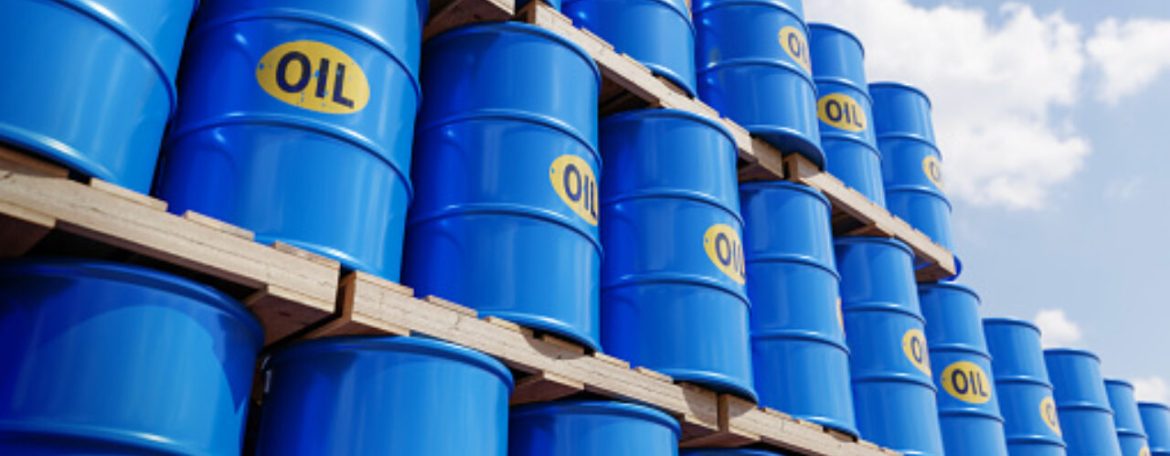Here in this article, the NUPRC said the oil production in Nigeria would hit two million barrels by the end of this year.
Although Nigeria’s oil production remains dismal at 1.3 million barrels per day amidst theft and vandalism, Nigerian Upstream Regulatory Commission (NUPRC), said the production would hit two million barrels by the end of this year.
The commission also insisted that the production would cross over to four million barrels per day in the medium term following a series of efforts being made.
Speaking at a Stakeholders’ Forum in Abuja where industry players gathered for a week-long deliberation on seven new regulations, Chief Executive of NUPRC, Gbenga Komolafe, said challenges hindering production from the deep-water assets were being tackled.
READ: Nigerian’s Crude Oil Production and Export Terminals Statistics
Although only 23 per cent of the assets governed by the Production Sharing Contract (PSC) was productive in 2021, Komolafe, who was represented by the Executive Commissioner, Economic Regulation and Planning, Dr. Kelechi Ofoegbu, said the challenges in the framework were urgently being addressed
“There is already a committee that is focused on that. There are reasons the production was at about 23 per cent in 2021 and we and the operators are all aware of the challenges. We are looking at it holistically and coming out with measures that will reverse that trend,” Komolafe said.
Speaking on production, he noted that, “the aim is to exit this year with two million barrels per day,” and “in the mid to short term do four million barrels per day.”
According to him, the country would rely on production from every available acreage, either from the PSC or from the Joint Ventures. This comes amidst importation of crude by local refineries even as the Nigerian LNG Limited said earlier in the week that low gas production, which should have come from the deep water has crippled its output by about 50 per cent.
READ: NUPRC seeks stakeholders’ inputs on 7 more petroleum regulations
Representative of Oil Producer Trade Section of the Lagos Chamber of Commerce, Nathaniel Oyatogun, said there was a need to improve the regulatory system to strengthen investment that would improve the country’s economy.
“That can only happen in an atmosphere where the regulations are fair enough to operationalize what the law has said in the Petroleum Industry Act,” he said.
The NUPRC is proposing a set of seven regulations, which are Draft Upstream Commercial Operations Regulations; Draft Upstream Petroleum Code of Conduct and Compliance Regulations; Draft Upstream Petroleum Development Contract Administration Regulations; Draft Upstream Revocation of Licenses and Lease Regulations; Draft Petroleum Assignment of Interest Regulations; Draft Nigerian Upstream Petroleum (Administrative Harmonization) Regulations and Draft Amendment to the Nigerian Upstream Petroleum Host Communities Development Regulations 2022.
The Draft Assignment Regulations 2023 is expected to elevate the provisions of the existing guidelines on divestment of interest to a regulation and by so doing, improve the rules to reflect current realities.
The Draft Nigerian Upstream Petroleum (Administrative Harmonization) Regulations 2023 would provide regulatory clarity on the implementation of the dual regulatory regime in the upstream occasioned by the preservation of licenses and leases granted under the Petroleum Act and not converted under the PIA.
The amendment to the host community regulation would introduce certain amendments to the existing regulation on the implementation of the host community regime to further ease the administrative process and provide regulatory clarity to the challenges that the implementation of the regime has thrown up in the last one year since the initial regulation was established.
The Draft Upstream Commercial Operations Regulations 2023 is aiming at establishing the framework on the procedure and process for evaluation and approval of Field Development Plans and annual work program and budget approvals.
The contract regulation on the other hand is expected to prescribe the framework for the regulatory administration of petroleum development contracts (joint development Agreements, Production sharing agreements, Service Agreements) relating to upstream petroleum operations.
The Draft Upstream Revocation of Licenses and Lease Regulations set out the framework for implementing the Revocation Provisions of the Act and for dealing with post revocation issues in a systematic manner that ensures.

